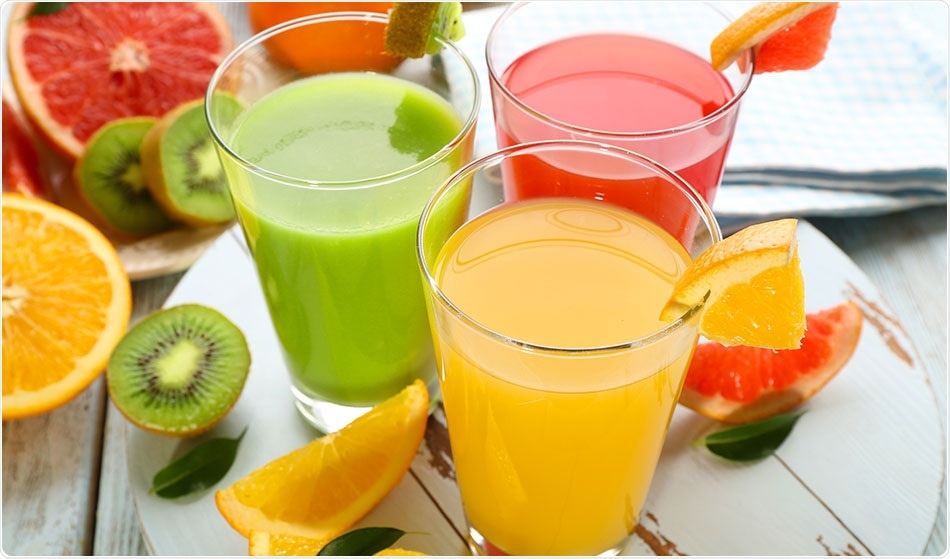Jan 19 2018
A new study published in the Journal of Nutritional Science suggests that consuming 100% fruit juice does not significantly impact fasting blood insulin, fasting blood glucose, or insulin resistance.

Credit: Africa studio/Shutterstock.com
The results are consistent with prior studies which have shown that consumption of 100% fruit juice is not linked to increasing risk of developing type 2 diabetes. It also supports a growing body of evidence that fruit juice has no significant impact on glycemic control.
The study involved comprehensive data analysis that quantitatively evaluated the correlation between consumption of 100% juice and blood glucose control.
The systematic review involved a meta-analysis of 18 randomized controlled trials (RCT) and assessed the effect that 100% juice from fruits like apple, citrus, berry, pomegranate, and grape, has on fasting blood insulin and blood glucose levels. This was used as a biomarker for diabetes risk.
According to The American Diabetes Association, more than 90% of the 29 million cases in adults and children in the United States fall in the category of type 2 diabetes—a metabolic disorder where the body is incapable of responding to insulin.
Following a healthy lifestyle is the first line of defense for preventing and treating type 2 diabetes. A healthy diet, regular physical exercise, and maintaining a healthy weight are also encouraged.
The US Dietary Guidelines state that a healthy eating pattern should include vegetables, fruits, low-fat or fat-free dairy, grains, and a variety of protein foods. A 4-oz. glass of 100% fruit juice could replace one serving (1/2 cup) of fruit, and can supplement whole fruit to help people add more nutrition to their diets.
Source:
https://www.eurekalert.org/pub_releases/2018-01/kc-n-nrf011718.php